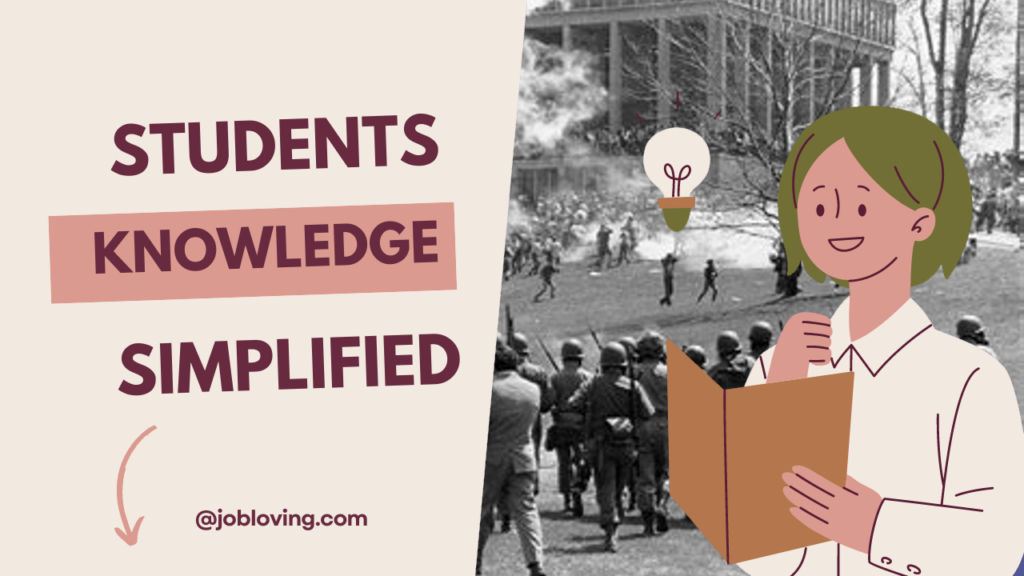On May 4, 1970, the idyllic campus atmosphere of Kent State University was shattered, leaving a deep scar in American history. As a group of students protested against the Vietnam War, a tragic incident unfolded, resulting in the deaths of four unarmed students at the hands of the Ohio National Guard. The victims—Allison Krause, Jeffrey Miller, Sandra Scheuer, and William Schroeder—lost their lives that day, their hopes and dreams fading in a mere 13 seconds as over 60 shots echoed across the campus.
This catastrophic event is etched in collective memory, not just as a moment of violence but as a profound historical lesson. The students were part of a larger anti-war movement that had been gaining momentum, reflecting deep political and societal rifts within the United States during the turbulent Vietnam War era. As the Guardsmen fired their weapons, chaos erupted; nine additional students sustained injuries, with one, Dean Kahler, suffering permanent paralysis that would fundamentally alter his life.
The ramifications of May 4 extended far beyond the university grounds. The incident catalyzed a nationwide student strike, with more than four million students taking a stand in solidarity, leading to numerous universities shuttering their doors. The phrase “Four Dead in Ohio” quickly became a rallying cry, encapsulating the pain and anger felt across the nation. It not only served as a poignant reminder of the costs of civil unrest but also shifted public opinion regarding U.S. actions in Vietnam.
The National Guard’s presence on campus was supposed to ensure safety in response to escalating protests. Still, their decision to mobilize effectively escalated tensions. Statements from then-Governor James Rhodes, which dismissed the student protests as mere “unrest,” only heightened feelings of doubt and frustration among the students, setting the stage for the tragedy that would follow.
In the aftermath, eight National Guardsmen faced civil rights violations but were acquitted, underscoring a significant shift in how authorities handled demonstrations and left many questioning the legitimacy of state power against civilians. This dreadful day marked a turning point not just for Kent State but American society as a whole. Literature analyzing the Kent State shootings has proliferated, yet no single account has been able to capture the full depth of the event.
As we reflect on May 4, 1970, it’s essential to remember the lives lost and the impact of the shootings on the American psyche. The legacy of that day continues to resonate within contemporary social justice movements, reminding us that dissent, though met with resistance, plays a crucial role in shaping society. Memorials and commemorative events held annually honor the victims, reminding us of the tragic consequences of violence against political expression. The Kent State shootings remain a pivotal moment, highlighting the ongoing struggle for civil liberties and the fight for justice.
What broader implications did the Kent State shootings have on American society and politics?
The Kent State shootings not only highlighted the tensions between students and government authorities during the Vietnam War era but also sparked a nationwide student strike, leading to significant shifts in public opinion regarding U.S. involvement in the Vietnam War. The event intensified scrutiny of government actions and policies, influencing discussions about civil rights and the role of military force in civilian protests.
How did the events of May 4, 1970, shape the future of student activism in the United States?
The tragic events at Kent State galvanized student activism across the nation, with over 4 million students participating in organized walkouts in the aftermath. This incident became emblematic of the anti-war movement, inspiring future generations to engage in protests and advocate for their rights, thus shaping the landscape of student activism in the years to come.
In what ways did the Kent State shootings influence law enforcement and military policies regarding protests?
The Kent State incident prompted significant changes in how law enforcement and military forces interact with civilian protests. The tragic outcome of the shootings led to increased scrutiny and calls for accountability, resulting in policy reforms aimed at preventing similar occurrences in the future and fostering a more cautious approach to handling protests on college campuses.
What is the lasting legacy of the May 4, 1970, shootings in contemporary discussions about civil liberties?
The legacy of the Kent State shootings continues to resonate in contemporary social justice movements, serving as a powerful reminder of the consequences of political dissent and violence. The event remains a focal point in discussions about free speech, protest rights, and government accountability, influencing ongoing debates about civil liberties in the United States.

